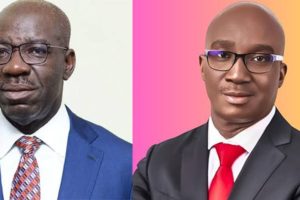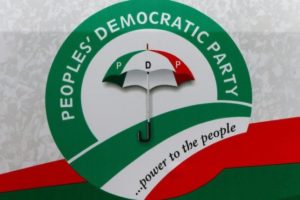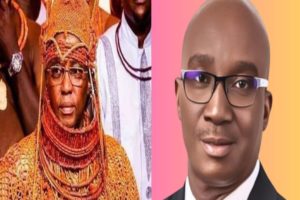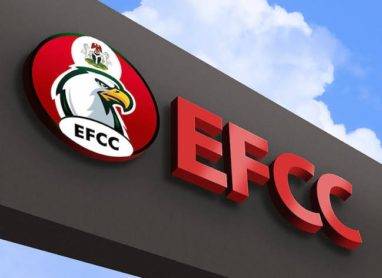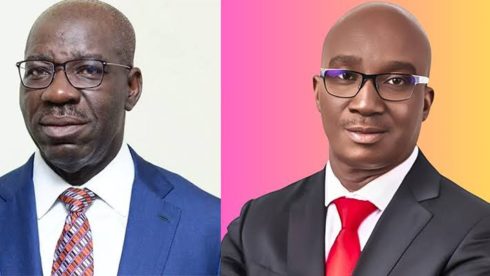The Economic and Financial Crimes Commission (EFCC) has made staggering allegations against numerous former governors, implicating them in a web of corruption, embezzlement, and money laundering. According to EFCC reports, at least 58 ex-governors are accused of involvement in the misappropriation of approximately N2.187 trillion over a span of 25 years.
This jaw-dropping amount excludes properties seized globally or currently under investigation, which collectively amount to billions of Naira. To put this into perspective, the looted N2.2 trillion matches the combined budgets of Lagos State and the South-East states for the year 2024, exceeding even the budgets of the North-Central and North-East states by several billion Naira. These revelations have sent shockwaves through Nigeria’s political landscape, underscoring the pervasive nature of corruption within the country’s governance structure.
The EFCC’s ongoing investigation, probing, and prosecution of the 58 ex-governors from various regions signify a significant crackdown on corruption within Nigeria’s political elite. Since the inception of civilian rule on May 29, 1999, Nigeria has seen approximately 170 governors across its 36 states, with a substantial portion now under the EFCC’s scrutiny. The allegations levied against these former governors range from tens of billions to mere millions, with each case shedding light on the extensive scale of corruption that has plagued the nation’s leadership.
Allegations and Figures: A Detailed Overview by EFCC
The allegations brought forth by the EFCC paint a grim picture of widespread corruption among Nigeria’s ex-governors. Among those named are prominent figures such as late Abubakar Audu, TA Orji and his sons, Yahaya Bello, and Ayo Fayose, with alleged amounts ranging from billions to hundreds of millions of Naira. Notable accusations include TA Orji and sons, accused of misappropriating a staggering N551 billion, and Ibrahim Shekarau allegedly involved in the misappropriation of N950 million.
These allegations underscore the urgent need for transparency and accountability within Nigeria’s political sphere. The vast sums of public funds allegedly siphoned by ex-governors could have been instrumental in addressing pressing socio-economic challenges facing the country, including healthcare, education, and infrastructure development. As investigations unfold and prosecutions proceed, Nigerians eagerly await justice and reparation for the decades of corruption that have hindered the nation’s progress.
Implications and Calls for Action
The implications of these revelations extend far beyond individual accountability, highlighting systemic flaws within Nigeria’s governance framework. The EFCC’s efforts to hold ex-governors accountable serve as a crucial step towards restoring public trust in governmental institutions and fostering a culture of integrity and accountability among public officials. However, these efforts must be met with comprehensive reforms aimed at strengthening anti-corruption measures, enhancing transparency, and bolstering institutional capacities to prevent future malfeasance.
Moreover, these allegations underscore the imperative for enhanced collaboration between government agencies, civil society organizations, and international partners in combating corruption and illicit financial practices. Only through concerted and sustained efforts can Nigeria hope to root out corruption and pave the way for sustainable development, equitable growth, and prosperity for all its citizens. As the EFCC continues its investigations and prosecutions, the eyes of the nation remain fixed on the pursuit of justice and the promise of a brighter, corruption-free future for Nigeria.
Gross Misconduct Unveiled
In a shocking revelation, the embezzlement actions of several governors have come to light, exposing the depth of corruption within Nigeria’s political landscape. Such gross misconduct should not even be a topic of discussion, yet it serves as a stark reminder of the impunity with which some politicians operate. These elected officials, entrusted with the welfare of the nation, have instead siphoned public funds for personal gain, crippling the economy and leaving citizens to suffer the consequences.
The brazen nature of these acts raises serious questions about accountability and the effectiveness of anti-corruption measures. Despite widespread condemnation, the perpetrators remain at large, evading justice and further eroding public trust in the system. Nigeria, long plagued by corruption, is in desperate need of reform. The hope now rests on the shoulders of leaders like Tinubu, whose administration must prioritize restoring faith in institutions like the EFCC and holding corrupt individuals accountable.
Empowering Nigerian Citizens to Resist Corruption
Nigerians must learn to resist their leaders’ corrupt practices, particularly in the face of such egregious misconduct. Contrary to popular belief, such resistance is not Haram but a necessary step towards reclaiming control over their collective future. However, it is essential to acknowledge that meaningful resistance requires more than just willpower—it demands mental and educational empowerment.
African politics, including Nigeria’s, has long been dominated by a self-serving elite class, reminiscent of colonial-era exploitation. These elites, akin to modern-day colonizers, continue to plunder the nation’s wealth, exacerbating poverty and inequality. In this environment, institutions like the EFCC must remain vigilant in their pursuit of justice, ensuring that public finances are safeguarded and channeled towards sustainable development initiatives. Only through concerted efforts to combat corruption and empower citizens can Nigeria break free from this cycle of exploitation and emerge as a beacon of integrity and progress in the region.
By shedding light on the pervasive corruption within Nigeria’s political echelons and emphasizing the importance of citizen empowerment and institutional accountability, we can begin to address the root causes of the nation’s economic woes and pave the way for a brighter, more equitable future
Table of Contents
Discover more from OGM News NG
Subscribe to get the latest posts sent to your email.



